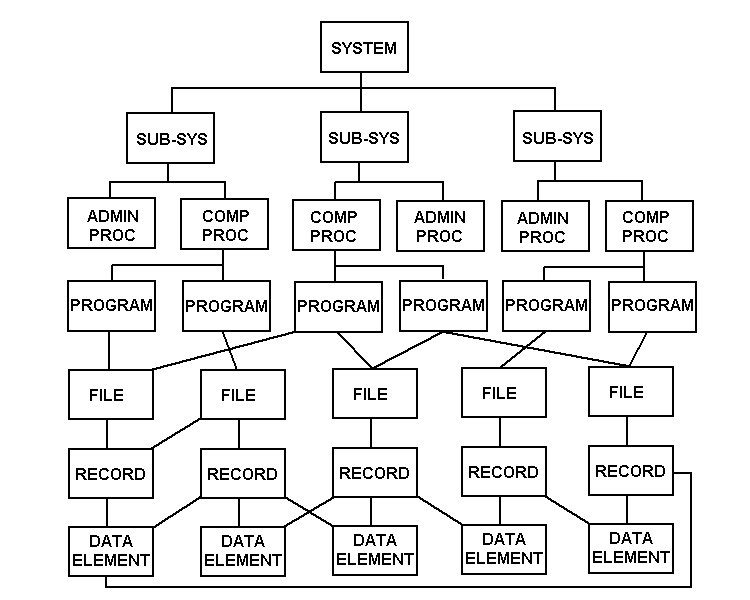- If Bill of Materials is good enough for engineering and architecture, why not systems and programming?
 Estimating is one of the most controversial subjects in project management. There are some people who have turned the subject into a cryptic science involving esoteric techniques.
Estimating is one of the most controversial subjects in project management. There are some people who have turned the subject into a cryptic science involving esoteric techniques.
Estimating is simply the process used to determine the amount of effort and cost required to implement a project, in part or in full. It is important to acknowledge that estimating is fundamentally an effort at projecting the future. Like all projections, the more facts and information available, the better the estimate. There is a natural human tendency to avoid making estimates because estimates represent commitments, and people tend to shy away from commitments, particularly when they are not sure of the facts. Nevertheless, little progress would be made if we never attempted to plan for the future.
Most estimating errors are errors of omission, not commission. It is what we forget to estimate that often leads to problems. Methodologies, with their defined structure, materially assists with eliminating some of the unknowns when estimating. They provide frameworks and structures acting as checklists for estimating. Methodologies isolate the activities to be performed into small enough increments, thereby minimizing the margin of error.
An estimate improves in accuracy in direct relation to the level of detail considered. A methodology defines the sequence of events by which parts are assembled. For example, a construction methodology identifies all of the resources of a product, such as lumber, steel, glass, etc. and how they are assembled. An Information Systems related methodology, such as "PRIDE"-ISEM, specifies the sequence by which data elements, records, files, inputs, outputs, processes, etc. are assembled. This provides the ability to use a "bill of materials" (BOM) technique to count all of the resources in the product and develop an estimate for the project, in part or in full, based on the standards developed for completing and/or installing a resource. This is why "PRIDE" methodologies put an emphasis on "rough designs" in the early phases of work.
To better understand the BOM concept, consider all products are composed of a variety of parts, be it electronics, automobiles, airplanes, ships, bridges, skyscrapers, homes, etc. Using BOM, the various components are identified and related to the other parts they will be attached. To illustrate, here is a lawn mower showing all of the parts, identified by number and name, along with their relationships:

Such illustrations can typically be found in most product warranty guides. Obviously, BOM is an old concept used by engineers and architects for many years, but they can also be applied to information systems involving sub-systems (business processes), procedures (both administrative and computer), programs, files, inputs, outputs, records, and data elements. It can also be used in programming components, such as modules. To think of systems in this manner is somewhat of a revolutionary concept.

From such designs, the Project Manager is asked to consider:
* The number and types of NEW components to be created.
* The number and type of existing components requiring MODIFICATION.
* The number and type of existing components that can be RE-USED as is (no modification required).
To illustrate, in a "PRIDE"-ISEM Project (Phase 1), a complete "rough design" of the envisioned system is produced in Activity F. In Activity G, the Project Manager takes the rough design and makes the following type of assessment:
| COMPONENTS | NEW | MODIFY | RE-USE |
| SYSTEM | 1 | ||
| SUB-SYSTEMS | 14 | ||
| ADMIN PROC | 23 | ||
| COMP PROC | 13 | ||
| PROGRAMS | 28 | ||
| MODULES | 33 | 10 | 112 |
| INPUTS | 17 | 5 | |
| OUTPUTS | 37 | 13 | |
| FILES | 56 | 5 | 43 |
| RECORDS | 250 | 50 | 306 |
| DATA ELEMENTS | 60 | 257 | |
This analysis is essentially no different than other products consisting of different components, such as circuit boards, chips, nails, screws, lumber, girders, glass, gaskets, pistons, etc.
In systems, the rough design is used as the road map for the project (in the above example, there will have to be 14 Phases 3-7 because there are 14 sub-systems and 13 Phase 4-II & 6 for the 13 computer procedures, and at least 28 Phase 5's for the programs). It is also the basis for the project estimate. Such estimating is greatly facilitated through the use of an IRM Repository which controls the components and, as such, acts like a Bill of Materials Processor (BOMP).
The BOM concept permits the establishment and application of estimating guidelines. To illustrate; how much direct time does it take to weld a six inch pipe? Define a data element? Design a sub-system? Such standards should be based on whole work (Direct Time) as opposed to including interferences (Indirect Time). Indirect time is a part of the work environment and can vary from company to company, group to group, even person to person. Estimating, therefore, must be accomplished using Direct hours only.
Having standards in place, we can then consider variations based on the skills of the worker. For example, how long it takes a novice worker to weld a product will certainly be longer than an expert. The same is true in systems analysis and programming. This is where a Skills Inventory comes in handy to select the appropriate worker for a project assignment.
By making system designers build a rough design of the product early in a project, the bill of materials can be populated accordingly and greatly improve estimating accuracy. As the project progresses, and changes are identified in the product structure, revisions in estimates can be easily made.
This is all made possible by using an engineering/manufacturing approach in the design and development of products, including systems.
Keep the Faith!
Note: All trademarks both marked and unmarked belong to their respective companies.
 Tim Bryce is a writer and the Managing Director of M&JB Investment Company (M&JB) of Palm Harbor, Florida and has over 30 years of experience in the management consulting field. He can be reached at timb001@phmainstreet.com
Tim Bryce is a writer and the Managing Director of M&JB Investment Company (M&JB) of Palm Harbor, Florida and has over 30 years of experience in the management consulting field. He can be reached at timb001@phmainstreet.com
For Tim's columns, see:
timbryce.com
Like the article? TELL A FRIEND.
Copyright © 2015 by Tim Bryce. All rights reserved.
NEXT UP: 44 YEARS OF "PRIDE" - and the lessons we have learned.
LAST TIME: YOU'RE FROM WHERE? - America is a country separated by a common language.
Listen to Tim on WJTN-AM (News Talk 1240) "The Town Square" with host John Siggins (Mon, Wed, Fri, 12:30-3:00pm Eastern); WZIG-FM (104.1) in Palm Harbor,FL; and KIT-AM 1280 in Yakima, Washington "The Morning News" with hosts Dave Ettl & Lance Tormey (weekdays. 6:00-9:00am Pacific). Or tune-in to Tim's channel on YouTube.
 As I was growing up my father moved the family around quite a bit due to the nature of his work (he was a pioneer in the systems and computer industry). My grade school years were predominantly spent in the Northeast (Delaware, Pennsylvania, Connecticut, and New York), except for a stint in California where we were told on more than one occasion we spoke with a distinct East Coast accent. I didn't think much of it at first, but I started to keep track of the peculiarities of our language. When we moved to Chicago, again we were told of our East Coast affliction, but when we moved to Cincinnati, the "Gateway to the South," we were told that we now had a hard Midwest accent. Eventually we moved our business down to Florida which is actually an amalgamation of many accents as people from just about everywhere move here. I suppose I now possess a "Heinz 57 Varieties" of American dialects.
As I was growing up my father moved the family around quite a bit due to the nature of his work (he was a pioneer in the systems and computer industry). My grade school years were predominantly spent in the Northeast (Delaware, Pennsylvania, Connecticut, and New York), except for a stint in California where we were told on more than one occasion we spoke with a distinct East Coast accent. I didn't think much of it at first, but I started to keep track of the peculiarities of our language. When we moved to Chicago, again we were told of our East Coast affliction, but when we moved to Cincinnati, the "Gateway to the South," we were told that we now had a hard Midwest accent. Eventually we moved our business down to Florida which is actually an amalgamation of many accents as people from just about everywhere move here. I suppose I now possess a "Heinz 57 Varieties" of American dialects.
 Now that Senator Ted Cruz has thrown his hat into the presidential ring, many others will likely follow suit shortly. This can only mean one thing; the GOP Stereotype season has officially opened. The main street media will now begin to characterize Republican contenders as either mean or crazy, or both. Let us not forget how they portrayed Senator Dan Quayle as a dim-bulb when he was announced as President George H.W. Bush's running mate, even though it was Quayle who pushed for the development of the Patriot missile which was successfully used in the Middle East. Many people genuinely believe Governor Sarah Palin said she could "see Russia from her back yard," when, in reality it was SNL comedienne Tina Fey who made the comment. In fact, Palin was actually an effective governor. And let us not forget how out of touch Governor Mitt Romney was portrayed with the working man and the poor. Somehow his successful run as Governor of Massachusetts and his work in the Utah Olympics was completely overlooked. Interestingly, the press somehow overlooked the time Democratic Senator Al Gore got lost in the woods shortly after being elected Vice President. Hardly anyone remembers the incident.
Now that Senator Ted Cruz has thrown his hat into the presidential ring, many others will likely follow suit shortly. This can only mean one thing; the GOP Stereotype season has officially opened. The main street media will now begin to characterize Republican contenders as either mean or crazy, or both. Let us not forget how they portrayed Senator Dan Quayle as a dim-bulb when he was announced as President George H.W. Bush's running mate, even though it was Quayle who pushed for the development of the Patriot missile which was successfully used in the Middle East. Many people genuinely believe Governor Sarah Palin said she could "see Russia from her back yard," when, in reality it was SNL comedienne Tina Fey who made the comment. In fact, Palin was actually an effective governor. And let us not forget how out of touch Governor Mitt Romney was portrayed with the working man and the poor. Somehow his successful run as Governor of Massachusetts and his work in the Utah Olympics was completely overlooked. Interestingly, the press somehow overlooked the time Democratic Senator Al Gore got lost in the woods shortly after being elected Vice President. Hardly anyone remembers the incident.
 Liberal friends simply do not understand my comments and resent it when I take a stand against their agenda. I am often accused of being insensitive or unreasonable. As an aside, have you ever noticed you are "unreasonable" when you do not agree with the other person's position? It's like saying, "Agree with me or I'll call you a name." Conversely, my conservative blood boils when I listen to the liberal diatribe. I look at them as if they have lost all sense of reality and common sense.
Liberal friends simply do not understand my comments and resent it when I take a stand against their agenda. I am often accused of being insensitive or unreasonable. As an aside, have you ever noticed you are "unreasonable" when you do not agree with the other person's position? It's like saying, "Agree with me or I'll call you a name." Conversely, my conservative blood boils when I listen to the liberal diatribe. I look at them as if they have lost all sense of reality and common sense.
 About ten years ago I wrote a paper titled,
About ten years ago I wrote a paper titled,  Something the media and the White House dares not mention is the concept of World War III as it is considered political poison. For that matter, the president cannot even mention Islamic Terrorism, let alone the concept of a new world war, yet there are some compelling arguments the war has already begun and, as usual, the United States is going to have to play catch up.
Something the media and the White House dares not mention is the concept of World War III as it is considered political poison. For that matter, the president cannot even mention Islamic Terrorism, let alone the concept of a new world war, yet there are some compelling arguments the war has already begun and, as usual, the United States is going to have to play catch up.
 My daughter came home for a visit recently. During the course of our conversations, she made the observation, "Dad, you're not as patient as you used to be." This caught me off guard, and in reflection, she was right. Whereas I was more tolerant years ago, now I am more black and white. At first, I dismissed the subject until I happened to consider the state of some of my friends locally who are also displaying the same characteristics, and we're all in our early sixties...
My daughter came home for a visit recently. During the course of our conversations, she made the observation, "Dad, you're not as patient as you used to be." This caught me off guard, and in reflection, she was right. Whereas I was more tolerant years ago, now I am more black and white. At first, I dismissed the subject until I happened to consider the state of some of my friends locally who are also displaying the same characteristics, and we're all in our early sixties...
 There have been several incidents recently which would lead us to believe the American flag is under attack.
There have been several incidents recently which would lead us to believe the American flag is under attack.
 I recently had a reader ask me what he should do about an office environment where the workers have incompatible
I recently had a reader ask me what he should do about an office environment where the workers have incompatible  I watched Mrs. Clinton's press conference on Tuesday regarding her recent e-mail troubles. For some strange reason, she began by discussing women's rights and the Iranian nuclear negotiations. Perhaps this was a smoke screen. I listened to her explanation about e-mails during her tenure as Secretary of State but wasn't satisfied. As citizens, we want assurances our government workers are working diligently and not exposing themselves to hacking of information, thereby allowing the misappropriation of our country's intelligence. We also do not want to see our systems inappropriately used for personal purposes, just like any business. In addition, the government needs to be able to control and safeguard all pertinent records for future reference, which is the purpose of the National Archives.
I watched Mrs. Clinton's press conference on Tuesday regarding her recent e-mail troubles. For some strange reason, she began by discussing women's rights and the Iranian nuclear negotiations. Perhaps this was a smoke screen. I listened to her explanation about e-mails during her tenure as Secretary of State but wasn't satisfied. As citizens, we want assurances our government workers are working diligently and not exposing themselves to hacking of information, thereby allowing the misappropriation of our country's intelligence. We also do not want to see our systems inappropriately used for personal purposes, just like any business. In addition, the government needs to be able to control and safeguard all pertinent records for future reference, which is the purpose of the National Archives.